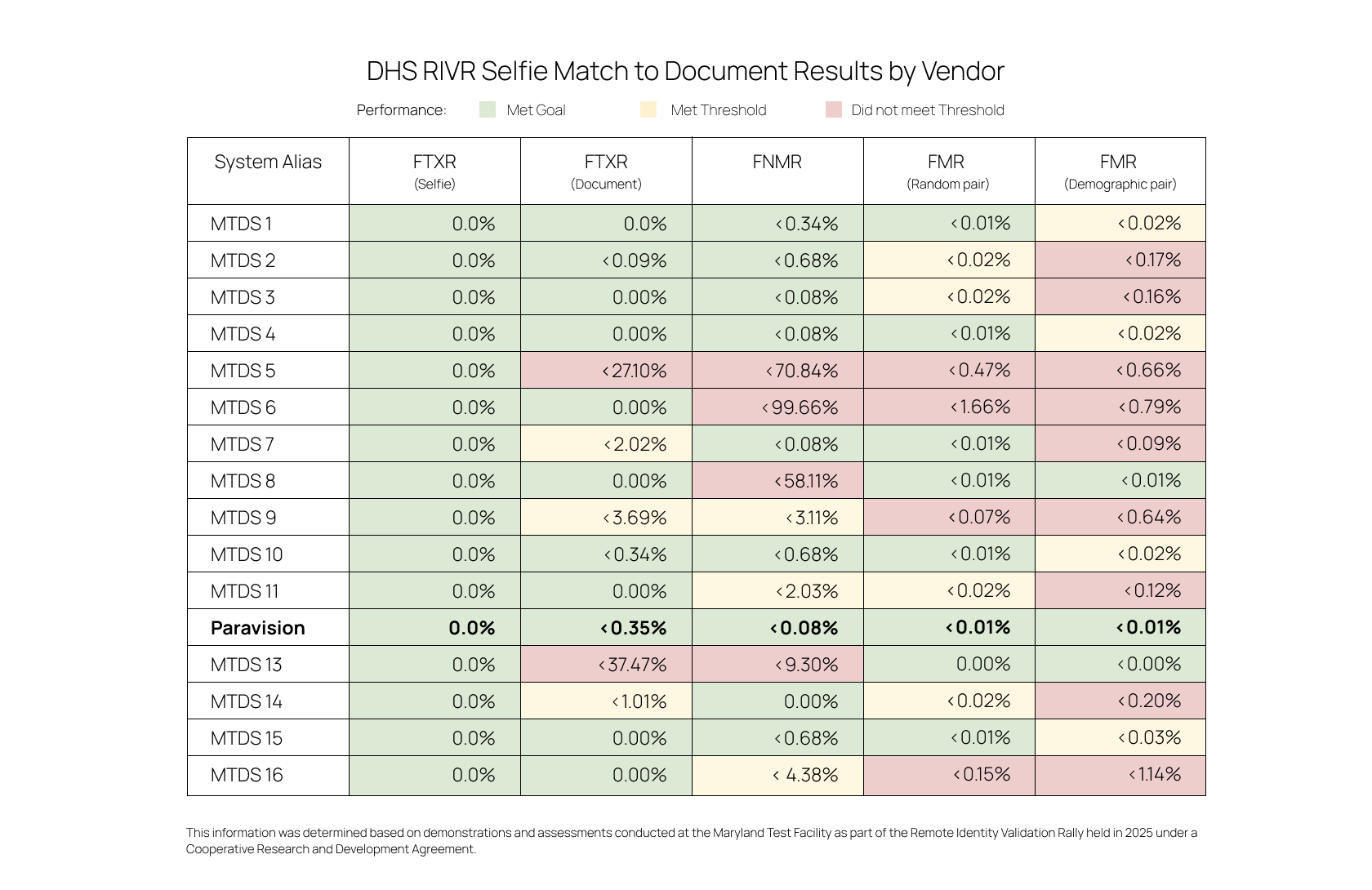Editor-in chief. Market intelligence and strategy expert, and long-year speaker, moderator. More than 15 years in global identity verification, age verification, and RegTech markets.
Posts by Per Henrikson:

The solution helps insurance companies reduce fraud risk, improve efficiency and safeguard profitability by enabling real-time identity verification automation, seamlessly integrated into the insurance workflow. For consumers, it can help provide a faster, low friction and streamlined interaction with insurers.

In this first of three DHS RIVR evaluation tracks, Paravision was among a small group of vendors that met DHS’s highest Goals across all core accuracy and reliability metrics — and the only vendor to also meet the rally’s most demanding Goal: maintaining < 0.01% false match rates when tested against demographically similar – look-alike – imposters.

In the race to innovate, software has repeatedly reinvented how we define identity, trust, and access. In the 1990's, the web made every server a perimeter. In the 2010's, the cloud made every identity a workload. Here in 2026, agentic AI makes every action autonomous.

FBI has documented over 300 US companies that unknowingly hired North Korean operatives using stolen identities and AI-generated personas.

AI deepfakes are eroding faith in biometrics and executive identities, forcing companies to rebuild trust in how they verify people and payments.

Memcyco focuses on real-time detection of brand impersonation attacks, where fraudsters mimic legitimate websites, apps, or digital journeys to deceive users into sharing credentials or financial information.

The OpenAge Initiative, the reusable age check system launched in November 2025 under the leadership of Singapore-based compliance firm k-ID, continues to attract new members in the biometrics and age assurance space.

Outtake is a digital trust platform that helps organizations detect, investigate, and disrupt identity-based threats across the AI-native web. By unifying protection across digital surfaces, Outtake enables institutions to operate with confidence in an era of industrialized deception.

Children’s privacy and online safety is in the spotlight in 2026. At the end of 2025, the House Energy & Commerce Committee released nineteen draft bills focused on minors’ privacy and online safety.

iBeta announced Level 3 PAD testing in June, as an extension of its popular testing program for compliance to the ISO/IEC 30107-3 standard. At the time, iBeta executives told Biometric Update the new level was introduced largely in response to the kinds of biometric spoof attacks AI has made easier and more scalable, driving a wave of fraud.

After countries such as Nepal and Vietnam have moved towards introducing IDV on social media, the Philippines and Thailand are exploring similar measures.

As Switzerland announces the official introduction of its national electronic identity (eID) system in 2026, the Federal Office for Information Technology and Communications (FOITT) and the Federal Office of Justice (FOJ) have unveiled the branding for the central wallet app, swiyu.











